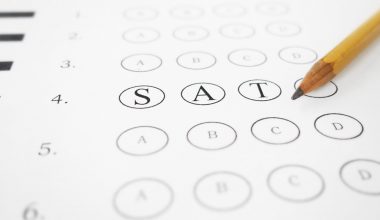As a vital part of the education system, the main function of a school board is to ensure that students receive a quality education.
Education is an essential aspect of society, and it is crucial to have a governing body overseeing schools’ management and operations. This is where the school board comes in – a group of elected officials responsible for making crucial decisions that affect the education system.
The school board acts as a liaison between the community and the school district, making decisions directly impacting the education system.
However, not everyone knows what a school board is, its functions and responsibilities, and how it impacts education. If you’re one of these individuals, you’re in luck!
In this article, we’ll discuss a school board’s main functions, the members’ roles and responsibilities, and the importance of their role in the education system.
Table of Contents
What is a School Board?
A school board is a governing body that oversees the management and operation of a school district.
The board is responsible for making decisions on behalf of the community regarding the education of its students, including setting policies and goals, approving budgets, and hiring and evaluating staff.
School boards can vary in size and structure, but they typically consist of elected or appointed members representing the community’s interests.
The board comprises elected officials, usually parents or community members, who work together to ensure that schools are run efficiently and effectively.
School boards are independent bodies with authority to make significant decisions impacting the education system.
You can read through: Who is The Boss of a School Principal?
What is the Main Function of a School Board?
The main function of a school board is to ensure that all students receive a quality education and that the district operates efficiently and effectively.
The school board is an elected body responsible for overseeing school administration in a district. School board members are typically elected by the community to serve a specific term.
The board is responsible for setting policies, making decisions, and ensuring that the district functions effectively.
Here are some of the critical functions of a school board:
#1. Setting Goals and Objectives
One of the primary functions of the school board is to set goals and objectives for the district. The board works with the superintendent and the administration to identify areas that need improvement and sets goals to achieve those improvements.
These goals may include academic achievement, graduation rates, or improving the district’s overall performance.
Don’t fail to also read through: How to Make Friends at School | A Step-by-Step Guide
#2. Budgeting
The school board is responsible for approving the district’s budget. This includes setting a budget for each school in the district, approving salaries for teachers and staff, and allocating funds for curriculum materials and supplies.
The board also ensures that the district complies with state and federal regulations regarding funding and expenditures.
You should also read: 15 Online Schools That Give Refund Checks and Laptops in 2023
#3. Hiring and Evaluating School Personnel
The school board hires and evaluates school personnel, including the superintendent, principals, and teachers.
Essentially, the board works with the administration to identify the qualifications needed for each position and ensures that the hiring process is fair and transparent.
The board also evaluates the performance of personnel and takes appropriate action when necessary.
#4. Curriculum and Instruction
The school board is responsible for setting the curriculum for the district. This includes deciding on textbooks, course materials, and teaching methods.
The board works with the administration to ensure that the curriculum aligns with state standards and prepares students for success. The board also sets policies related to instructional practices, such as grading and testing.
#5. School Safety and Discipline
The school board is responsible for ensuring that the schools in the district are safe and secure for students and staff.
This includes developing school safety and discipline policies, such as emergency procedures and a code of conduct.
The board works with the administration to ensure that schools follow these policies and that students receive a safe and secure learning environment.
See Also: What is Back to School Night? What Does Back to School Night Mean?
#6. Community Engagement
The school board is responsible for engaging with the community and informing them about the district’s activities and progress.
Basically, the board attends public meetings and events and provides updates on the district’s progress. The board also seeks input from the community on issues related to the district and considers this feedback when making decisions.
#7. Managing Finances
Another critical function of a school board is to manage the district’s finances. This includes developing a budget, allocating funds to various programs and services, and ensuring that the district operates within its financial means.
School boards work closely with financial managers and other staff to ensure the district’s resources are used efficiently and effectively.
#8. Ensuring Compliance with Laws and Regulations
Finally, school boards are responsible for ensuring compliance with federal and state laws and regulations. This includes everything from ensuring that students receive a quality education to protecting their rights and ensuring their safety while on school grounds.
School boards work with legal counsel and other stakeholders to ensure that their district is operating within the bounds of the law and meeting its legal obligations.
Check also: Can You Get Your High School Diploma Online For Free
Roles and Responsibilities of School Board Members
Aside from its functions, a school board has several responsibilities that it must fulfill. School board members have a variety of roles and responsibilities.
Here are some of the key responsibilities of a school board:
- Setting goals and objectives: School boards must set clear goals and objectives for the district’s schools. These goals should align with the district’s vision and mission statement and should be geared toward improving student achievement.
- Evaluating district performance: School boards must assess the district’s performance regularly. This involves reviewing student achievement data, conducting surveys, and assessing the effectiveness of school programs and initiatives.
- Developing and implementing strategic plans: School boards must develop strategies aligning with the district’s goals and objectives. These plans should cover all aspects of the education system, including curriculum, instruction, and assessment.
- Ensuring compliance with state and federal regulations: School boards must ensure that the district complies with state and federal regulations. This includes laws related to education, such as No Child Left Behind and the Individuals with Disabilities Education Act.
How Does a School Board Impact Education?
School boards play a crucial role in the education system, and their decisions can significantly impact students, teachers, and the community.
Here are some of the ways in which school boards impact education:
- Curriculum development: School boards are responsible for developing and implementing the curriculum. They must ensure that the curriculum aligns with state standards and meets the needs of the district’s students.
- Teacher hiring and evaluation: School boards are responsible for hiring and evaluating teachers.
- Allocating funds: School boards allocate funds for various school programs and initiatives. They must ensure that these funds are used appropriately and that they are meeting the needs of the students.
- Implementing policies: School boards create policies that impact students, such as discipline policies, bullying policies, and academic standards. These policies affect the day-to-day experiences of students in the classroom.
- Addressing concerns: School boards address concerns raised by parents and community members. They must listen to these concerns and take appropriate action to address them.
- Strategic planning: School boards develop and implement strategic plans that help guide the district’s overall direction. These plans can have a long-lasting impact on the district and its students.
Importance of the School Board
The school board plays a critical role in the education system, ensuring that students receive quality education and that schools are functioning effectively.
Without the school board, the education system would lack oversight and direction, potentially leading to a decline in academic achievement and school safety.
School Board Membership: What You Need to Know Before Taking the Plunge
School board membership is a noble responsibility that requires dedication, passion, and the ability to work collaboratively.
It involves making crucial decisions that affect the quality of education and the lives of your community’s students, teachers, and staff. If you’re considering joining your local school board, there are a few things you need to know before taking the plunge.
This section will discuss the benefits of school board membership, the challenges you may face, how to become a board member and tips for success.
Benefits of School Board Membership
Becoming a school board member is an excellent way to give back to your community and positively impact education. Here are some of the benefits of school board membership:
- Influence Education: As a school board member, you will directly impact the education system in your community. You will have the power to make decisions that affect curriculum, budgets, policies, and programs that can improve the quality of education.
- Develop Leadership Skills: School board membership provides an opportunity to develop and strengthen leadership skills. You will learn how to collaborate with others, communicate effectively, and make difficult decisions.
- Networking: School board membership allows you to network with other professionals in your community. You will have the chance to work with educators, administrators, parents, and other stakeholders in education.
- Personal Fulfillment: School board members can be a rewarding experience that provides personal fulfillment. You will be satisfied knowing that you are making a difference in the lives of students and the community.
Challenges of School Board Membership
Although school board membership has many benefits, it also comes with its fair share of challenges. Here are some of the challenges you may face as a school board member:
- Time Commitment: School board membership requires a significant time commitment. You will be required to attend regular meetings, workshops, and other events that can take up considerable time.
- Public Scrutiny: School board members are subject to public scrutiny, and the media, parents, and community members often scrutinize their decisions. You must be prepared to handle criticism and work collaboratively with others to find solutions to challenges.
- Conflict Resolution: School board members often deal with stakeholder conflict and disagreement. You will need to have strong communication and conflict-resolution skills to navigate these situations.
- Legal Knowledge: School board members must understand education law, policies, and regulations. You must stay informed about legal issues that affect education and ensure that decisions comply with the law.
How to Become a School Board Member
If you’re interested in becoming a school board member, here are the steps you need to follow:
- Research: Start by researching the requirements and responsibilities of school board membership in your state. Find out if there are any specific qualifications you need to meet, such as residency or age requirements.
- Attend Meetings: Attend school board meetings better to understand the role and responsibilities of school board members. You can also use this opportunity to ask questions and connect with current school board members.
- Get Involved: Get involved in your local community and education system. Volunteer at your child’s school, attend PTA meetings and participate in community events. This will help you build relationships and establish your commitment to education.
- Campaign: Once you decide to run for school board membership, you will need to create a campaign plan.
- File Nomination: Contact your local election office and file your nomination papers to declare your candidacy officially.
- Campaign: During the campaign period, creating a strong message that resonates with your community is essential. You will need to connect with voters, attend debates and forums, and use various communication channels to promote your campaign.
- Election Day: Encourage your supporters to vote for you on election day. Remember to follow all election rules and regulations to ensure a fair and transparent election process.
- Orientation: If you win the election, you will be required to attend an orientation session to learn about your role, responsibilities, and the policies and procedures of your school board.
Tips for Success as a School Board Member
Becoming a school board member is just the first step. To succeed in this role, you must develop specific skills and characteristics. Here are some tips for success as a school board member:
- Be a Good Listener: Listen to the concerns and opinions of your stakeholders, including students, parents, educators, and administrators. Use their feedback to make informed decisions that benefit the education system.
- Communicate Effectively: Communicate clearly and effectively with your stakeholders, including the media. Use various communication channels like social media, newsletters, and public speeches to keep your stakeholders informed and engaged.
- Stay Informed: Stay up-to-date with the latest education policies, regulations, and trends. Attend conferences, workshops, and training sessions to develop your knowledge and skills.
- Collaborate: Work collaboratively with your fellow school board members, administrators, educators, and other stakeholders. Collaboration helps build trust, relationships, and partnerships to improve education outcomes.
- Be Accountable: Be accountable for your decisions and actions. Take responsibility for your mistakes and learn from them. Transparency and accountability are essential for building trust and credibility.
FAQs
A school district is a geographical area that includes one or more schools. A school board is a governing body responsible for overseeing the management and operations of the schools within the district.
The public elects school board members. They may run for office themselves or be nominated by others.
In most cases, a district resident over 18 years old can run for a school board position. However, some states and districts have specific requirements, such as residency requirements or a certain level of education.
School board members typically serve a term of four years, although this can vary depending on the district.
School board membership requires a significant time commitment. You will be required to attend regular meetings, workshops, and other events that can take up considerable time.
The school board typically appoints the superintendent and serves as the district’s chief executive officer. The superintendent works with the board to implement policies and achieve the district’s goals and objectives.
Conclusion
School boards play a critical role in the education system. They are responsible for creating policies, managing budgets, and overseeing the operations of schools within a district. Their decisions can significantly impact students, teachers, and the community.
The board sets policies and goals for the district, approves the budget, and ensures that students receive a quality education.
School board members have a variety of roles and responsibilities and play a critical role in the education system’s success.
By understanding what a school board is, what it does, and how it impacts education, we can better advocate for our children’s needs and ensure they receive the best possible education.
References
- masterclass.com – Understanding the Role and Responsibilities of a School Board
- boardable.com – Complete Guide To Board Member Responsibilities & Roles
Recommendation
- How to Make Friends at School | A Step-by-Step Guide
- Who is The Boss of a School Principal?
- If Your Child Is Expelled From School, Are They Allowed To Go To A Different School In The Same District?
- What Should A Student Do In High School To Become An Astronaut?
- Is Highschool Supposed to Be One Word or Two Words in 2023?





